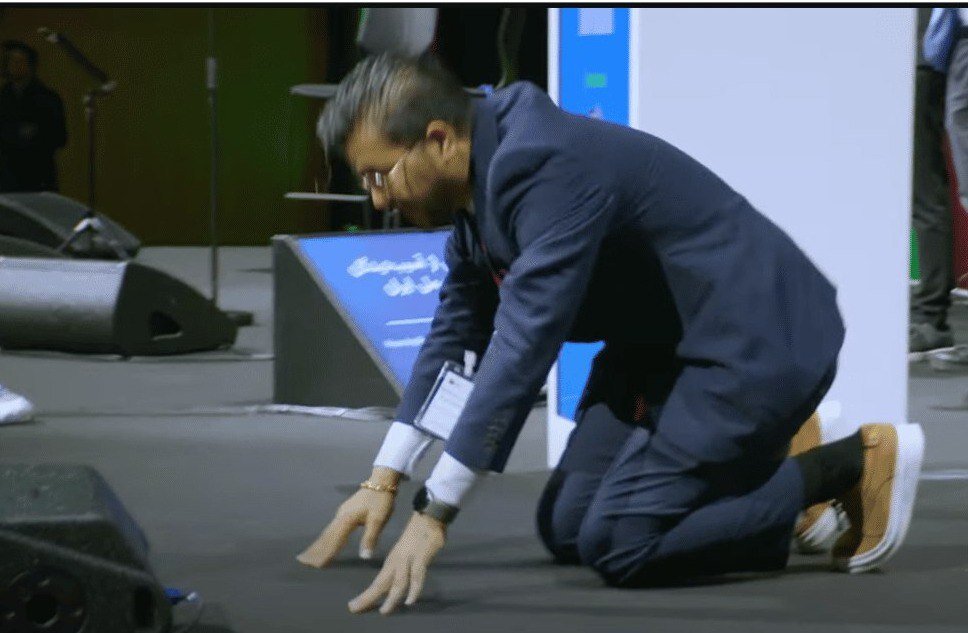How Israel's war dealt the final blow to Iran’s opposition

TEHRAN – The Iran-Israel war concluded over 40 days ago, but you wouldn't know it walking through Tehran. The capital's packed subways and buses are filled with people going about their daily lives, and hardly anyone seems to be talking about the 12 days they spent hearing active air defenses constantly.
But outside Iran's borders, the topic is as current as it was during the war. On podcasts and independent YouTube channels, a common question is how history will remember the Western-based Iranian opposition after the conflict with Israel. "History is very straight-forward and brutal," one podcaster commented to a historian guest. "Do you think anyone will speak of the Iranian opposition in a good light in the future?" he asked. The guest simply shook his head and replied, "No."
For much of the past four decades, the Iranian opposition in the West – consisting primarily of aging loyalists of the deposed Shah and younger journalists and activists who began their careers in Iran before aligning with foreign governments – has been fragmented and mired in challenges to unite. It appears, however, that during the recent war a consensus emerged among many within this opposition: that aggression against Iran and the killing of Iranians by Israeli airstrikes, which claimed at least 1026 lives, was OK as long as it meant the Islamic Republic would be toppled.
Unsurprisingly, this perspective did not resonate with those inside Iran. The pleas of the deposed Shah's son holding a presser packed with Western journalists during the war, calling on people to "rise up" against the Islamic Republic, was the furthest thing from the minds of Iranians whose lives were disrupted, who feared for themselves and their families, and who mourned scenes of random Tehran neighborhoods lying in ruins. In fact, inside Iran people have always afforded little credibility to the Western-based opposition.
"I don't know what that clown was thinking," said Sara, an office worker in her 40s, originally from eastern Iran and a long-time Tehran resident. "Some say I'm too harsh, but I genuinely believe anyone who's left this country and made a life for themselves abroad doesn't get to have a say anymore. The Shah's son, and many of these so-called opposition members, became citizens after swearing an oath to protect American interests. That's all they are: Americans."
What perhaps many observers failed to foresee was that the opposition's alignment with Israel would also alienate Iranians living abroad, most of whom reside in the United States and western Europe.
While around 80,000 Iranians attended a rally in Berlin in 2022 calling for the Islamic Republic’s overthrow, according to German reports, a similar gathering in Munich last month attracted only around 300 people at best. I reached out to a distant relative I knew had been at the Berlin rally to ask if she had also attended the Munich gathering. “I haven’t,” she said over text. “I will never again participate in anything these traitors organize.”
The opposition’s future
We now know that the Western-based Iranian opposition backed Israel during the war, hoping to replace the Islamic Republic. The Iranian government prevailed. The opposition lost public support in the West and it will likely be remembered as traitors in history. But can they recover from this self-inflicted wound and regain relevance, even as mere dissenters, in the near future? One former member of the Mujahedin-e-Khalq Organization (MEK) believes they likely cannot.
"The last straw for people observing the MEK in the 1980s was the group's backing of Saddam Hussein during his invasion of Iran. After almost four decades, everyone still remembers the MEK as traitors," explained Ebrahim Khodabandeh, who was one of the group’s top members for years.
The MEK, a terrorist organization responsible for the deaths of over 24,000 Iranians, was initially formed to oppose the Shah's regime. However, after failing to secure a political foothold post-revolution, they turned against the Islamic Republic and have largely been operating from outside Iran ever since. MEK members are currently based in camps in Albania while the leadership spends time in Western countries.
Although the MEK presents itself as an opposition group and is currently recognized as such by Western states, even those critical of the Islamic Republic have increasingly distanced themselves from the organization over the years. Most are unwilling to be publicly associated with the group, even if cooperation occurs behind closed doors. "You simply can't rebrand yourself after treason, at least not with Iranians,” Khodabandeh stated.
Leave a Comment